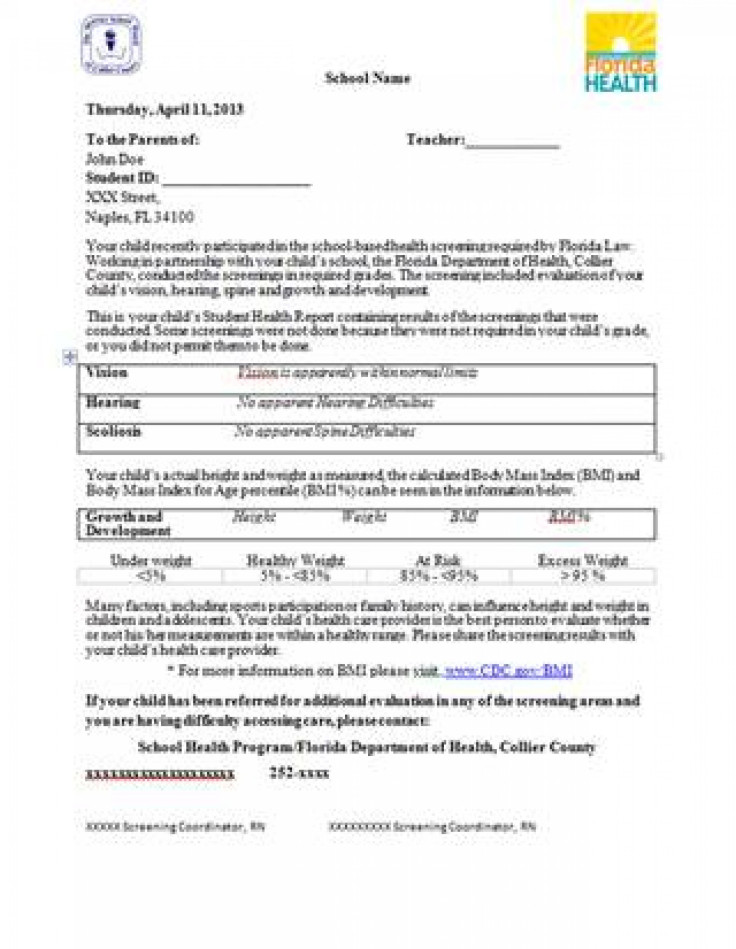School 'Fat Letter' Sent Home With 11-Year-Old Lily Grasso Because Of Mandatory BMI Testing In Florida

When Kristen Grasso opened up a letter sent home with her daughter Lily from her school in Naples, Fla., it wasn't about an award or bad behavior. The letter claimed her 11-year-old daughter is fat.
According to Today.com, the mail, dubbed a "fat letter," is sent by the Florida Department of Public Health with data taken from regular yearly screenings for students in kindergarten, first, third and sixth grades. The letters, sent home with students in sealed envelopes addressed to the parents, contain information about students' hearing, vision, scoliosis risk and body mass index (BMI), which is calculated using height and weight. Florida is one of 21 states where the law requires schools to screen students for BMI at the beginning of each year.
Lily is 5 foot 4 inches tall and weighs 124 pounds.
"Lily is tall, athletic, solid muscle. By no means is she overweight," Kristen Grasso told the Orlando Sentinel. "[The letter] says 'at risk,' and then it tells you to go to their website. When you do that, the 'at risk' turns to 'Lily is overweight.'"
Grasso, a mother of four, said her daughter eats healthy and is "athletic, tall, plays volleyball six days a week for two different teams. She's not overweight."
Deb Millsap, public information officer of the Collier County Health Department, told Today.com that the so-called "fat letter" is meant for parents, which is why it is sealed, and acknowledged that BMI is merely a rubric for health.
“We do not want kids to have self-esteem issues,” Millsap said. “Right on [the] letter it says sports may impact the results.”
“Because of the obesity crisis, we have to have some tool [for early assessment]," department director Dr. Joan Colfer added. "The CDC will say [BMI] is not perfect. These are simply screen tests; it is not a diagnosis.”
For this reason, Kristen and Lily Grasso, and many others who have heard their story, are unsure how this test could offer a positive impact for students' health.
"This whole thing is stupid. It's just not useful. It can hurt people. It can break their courage," Lily Grasso told ABC Chicago affiliate WLS-TV.
"To give a kid a letter telling them the rest of their life they may be overweight or be obese because of a measurement you took one day -- it's just not fair," Kristen Grasso added.
"I would like to see BMI testing in schools banned," Claire Mysko, spokesperson for the National Eating Disorders Association, told ABC Chicago affiliate WLS-TV. "For those who are already insecure about their weight, these tests can potentially trigger an eating disorder."
© Copyright IBTimes 2024. All rights reserved.












